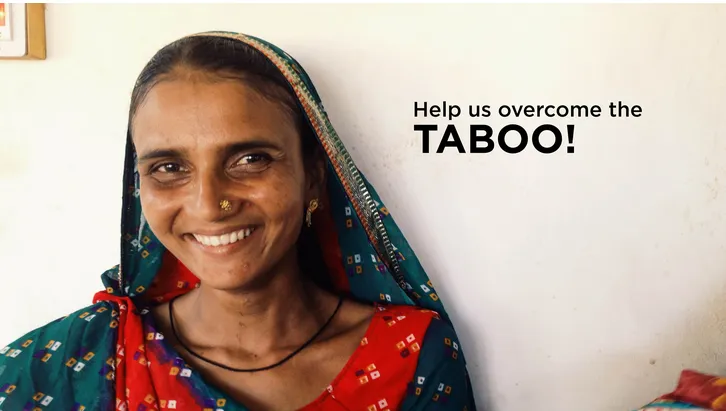How Aakar has built a campaign to escalate the conversation about menstrual hygiene in India
There are 312 million women in India who do not have access to hygienic and effective menstrual protection. Yes, that is 9 out of 10 women in India who are constrained by their own bodies every single month. As a result, women resort to damaging improvisations such as dirty rags or old leaves, which can eventually lead to irreparable health problems and diminished self-worth.
One of the most profound implications of these practices is that adolescent girls often skip 1 week of school every month, which over time, forces them to drop out of school completely because they can’t keep up. 1 out of 4 girls drop out of school when they reach puberty. That’s a quarter of the next generation of women in India!

This barrier for women and girls is multi-faceted; on one hand, current sanitary napkins sold in the market are too expensive and inaccessible for women to purchase in rural areas. On the other hand, knowledge about monthly periods is often passed down through generations of women in a given family or community, which can result in a lack of understanding about the broader implications of reproductive healthcare; and discussion about menstrual hygiene is often pushed to the wayside or not brought up at all.
All of this is influenced by an underlying aversion towards menstruation that permeates culture around the world. But in India, the taboos assosiated with menstruation are particularly severe, inhibiting women from eating certain foods, speaking to certain people, or even participating in their day to day activities. For a biological function that happens every month, menstruation is still looked down upon as something women should be ashamed of.
Aakar Innovations is working to end these restrictions. With their sanitary napkin production unit, a mini-factory run by women is able to produce compostable sanitary pads, which are not only affordable but also, adhere to all the quality requirements dictated by the Bureau of Indian Standards. And to reach the rural masses, each of these units are strategically placed in the most remote parts of India, usually inaccessible by common vehicular routes. Otherwise known as a mini-factory, 10-15 women are directly employed at each unit to make these pads. At the moment, all of the pads get distributed to NGOs or hospitals through Aakar, not to the communities of women that need it most.
So, Aakar needs to do even more. Without addressing the subtle, veiled cultural stigmas associated with menstruation, Aakar, as an organization, cannot reach out to the women unable to participate fully in society. To address this challenge, Aakar is in the process of building a training program for women to go out into their own communities and spread awareness about reproductive health. This means a significant amount must be invested so that Aakar can create engaging programs that teach rural women and girls about menstrual hygiene through a comprehensive, interactive curriculum that includes games, plays, videos, etc. Aakar Innovations hopes to instruct these women such that they become confident and passionate enough to speak about the cultural stigmas associated with menstrual hygiene, and rise above them for the benefit of their own mothers, sisters, aunts and daughters.
The second component of Aakar Social Ventures will be to train women as village entrepreneurs (affectionately called "Anandi Ben,") who sell & distribute menstrual hygiene products to the doorsteps of girls and women in surrounding villages. In turn, the localized entrepreneurs become advocates for reproductive health within their existing social circles that other women and girls know they can trust.
These simple interventions can have an enormous impact on keeping girls in school, and women in their jobs, in some of the poorest areas in India. By introducing more capital into the local economy and providing an alternative to large corporations that often drain local resources, Aakar creates a ripple effect of independent, sustainable capital to other local businesses. More importantly, it will empower generations of women and girls who can become active members of society, making their own money, and owning their own body.
But for Aakar to take action, they need your help. With ten production units across India, and 40 more slotted to open over the course of the next year, they need your support in cultivating a more conscious generation of both men and women on better menstrual health. We need to work together to integrate those that have been left out of India’s growth story.
For the next 60 days, Aakar Innovations will be running its first ever crowdfunding campaign. They intend to build an international movement that breaks the silence surrounding menstrual hygiene, and generate an awareness that empowers women to take pride in their own bodies.
To contribute and join Aakar Innovation’s international crowdfunding campaign visit: www.ketto.org/aakarinnovations
Help spread the word by tagging #freedomfromshame, and share Aakar’s campaign all over your social media networks. We know you’re popular! Reach as many people as you can. The team at YourStory will be sharing it too.







